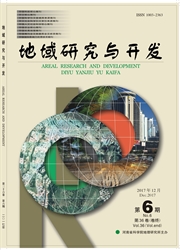

 中文摘要:
中文摘要:
从回族居民群体特征出发,基于时间地理学的视角理解其时空间行为,提出少数民族行为的行为选择与制约效应框架,并以西宁市回族居民为例,从微观行为视角解读少数民族的城市时空间行为与特征。结果表明:(1)回族居民受工作活动制约相对较弱,活动时间安排上自主性更强,活动具有丰富性、细碎性的特点;(2)回族居民活动空间范围存在局限性,出行需求相对较低;(3)宗教活动对回族居民时空间行为存在制约。
 英文摘要:
英文摘要:
This research takes the Hui ethnic group as an example and examines the space-time behavior of the Hui residents from a time-geography perspective. A framework of ethnicity-related space-time constraints was proposed first, and then the case of Xining, a multi-ethnic city in the western region of China, was examined. The findings include: (1) With less constraints from working activities, the activity pattern of the Hui groups is more complex and the schedule is more flexible than the Han majorities. (2) The activity space of the Hui is limited and the travel demand is lower. (3) The religious activities can cause constraints on space-time behavior. This research provides insight into the use of space and time of the Hui minorities in the urban area, and also give some policy implications for the multi-ethnic cities.
 同期刊论文项目
同期刊论文项目
 同项目期刊论文
同项目期刊论文
 期刊信息
期刊信息
